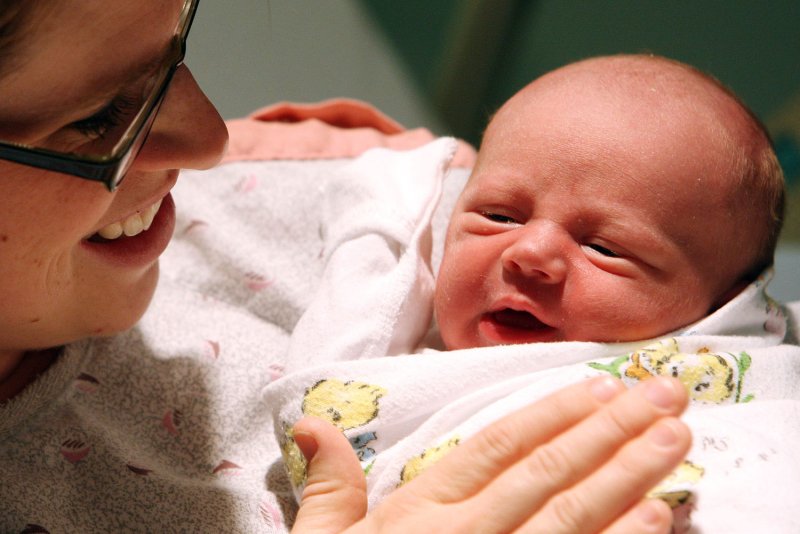SEATTLE, Oct. 12 (UPI) -- Infants as young as 15 months detect the difference between equal and unequal distribution of food and are willing to share, U.S. researchers say.
Study leader Jessica Sommerville of the University of Washington said the research has implications for nurturing human egalitarianism and cooperation.
"Our findings show that these norms of fairness and altruism are more rapidly acquired than we thought," Sommerville said in a statement.
During the experiment, a 15-month-old baby sat on his or her parent's lap and watched two short videos of experimenters acting out a sharing task. In one video an experimenter holding a bowl of crackers distributed the food between two other experimenters.
They did the food allocation twice, once with an equal allotment of crackers and the other with one recipient getting more crackers, Sommerville said. Then the experimenters used milk instead.
The experimenters measured how long the babies looked at the food distribution, because babies pay more attention when they are surprised.
"The infants expected an equal and fair distribution of food, and they were surprised to see one person given more crackers or milk than the other," Sommerville said.
In a second experiment, another baby gestured toward a toy and asked for it. One-third shared their preferred toy, another one-third shared their non-preferred toy and one-third of did not share either toy.
"The results of the sharing experiment show that early in life there are individual differences in altruism," Sommerville said.
The findings are published in the journal PLoS ONE.















